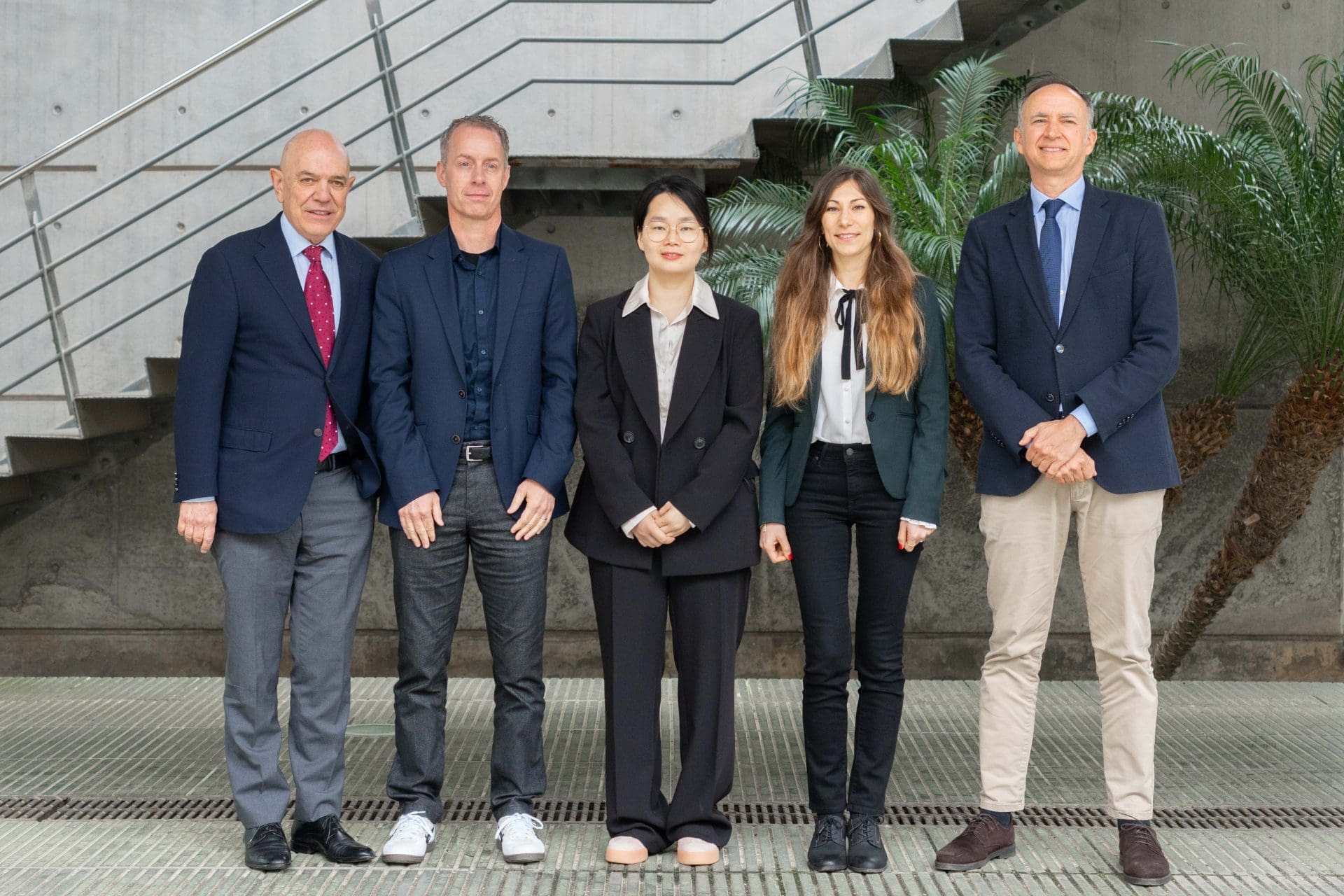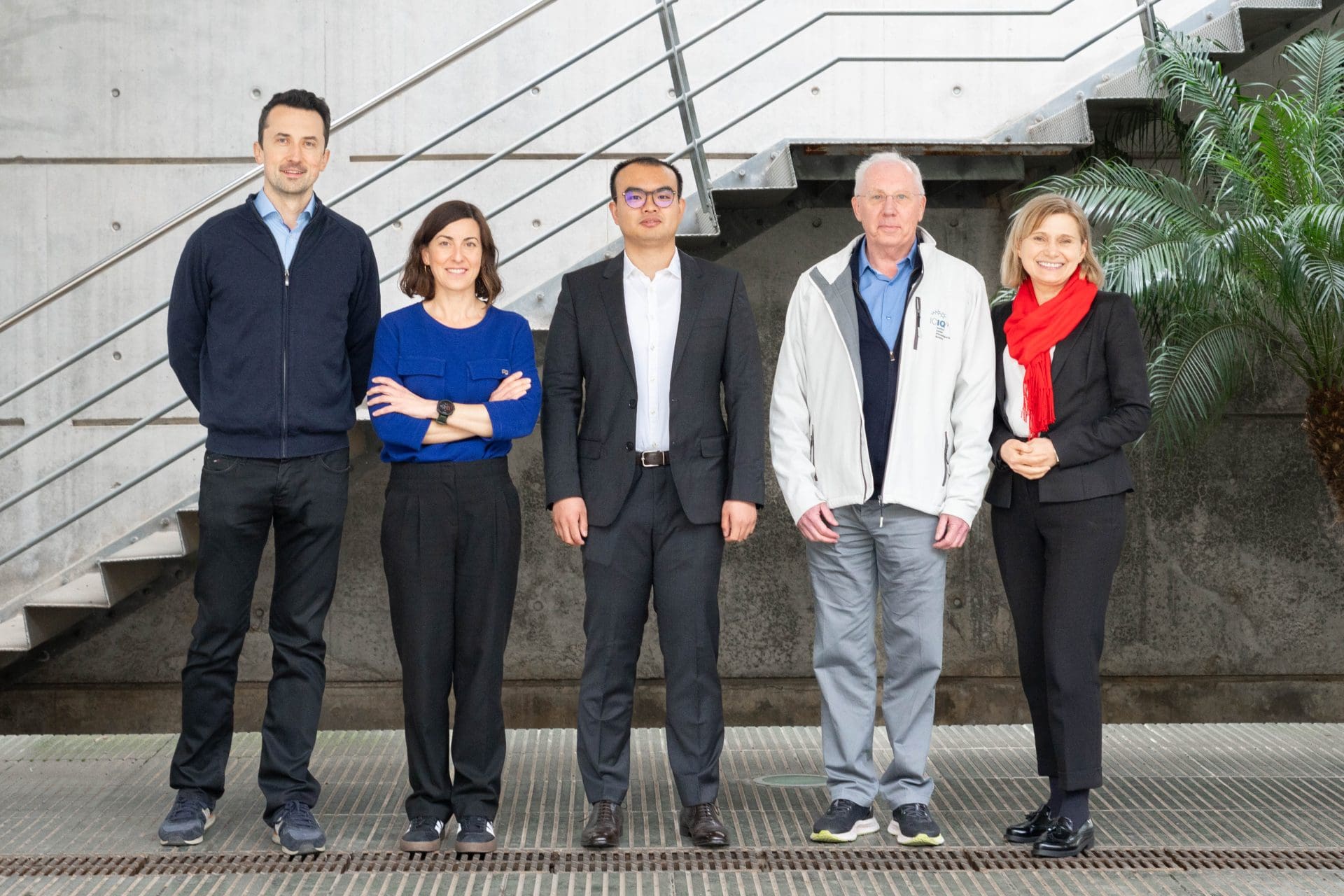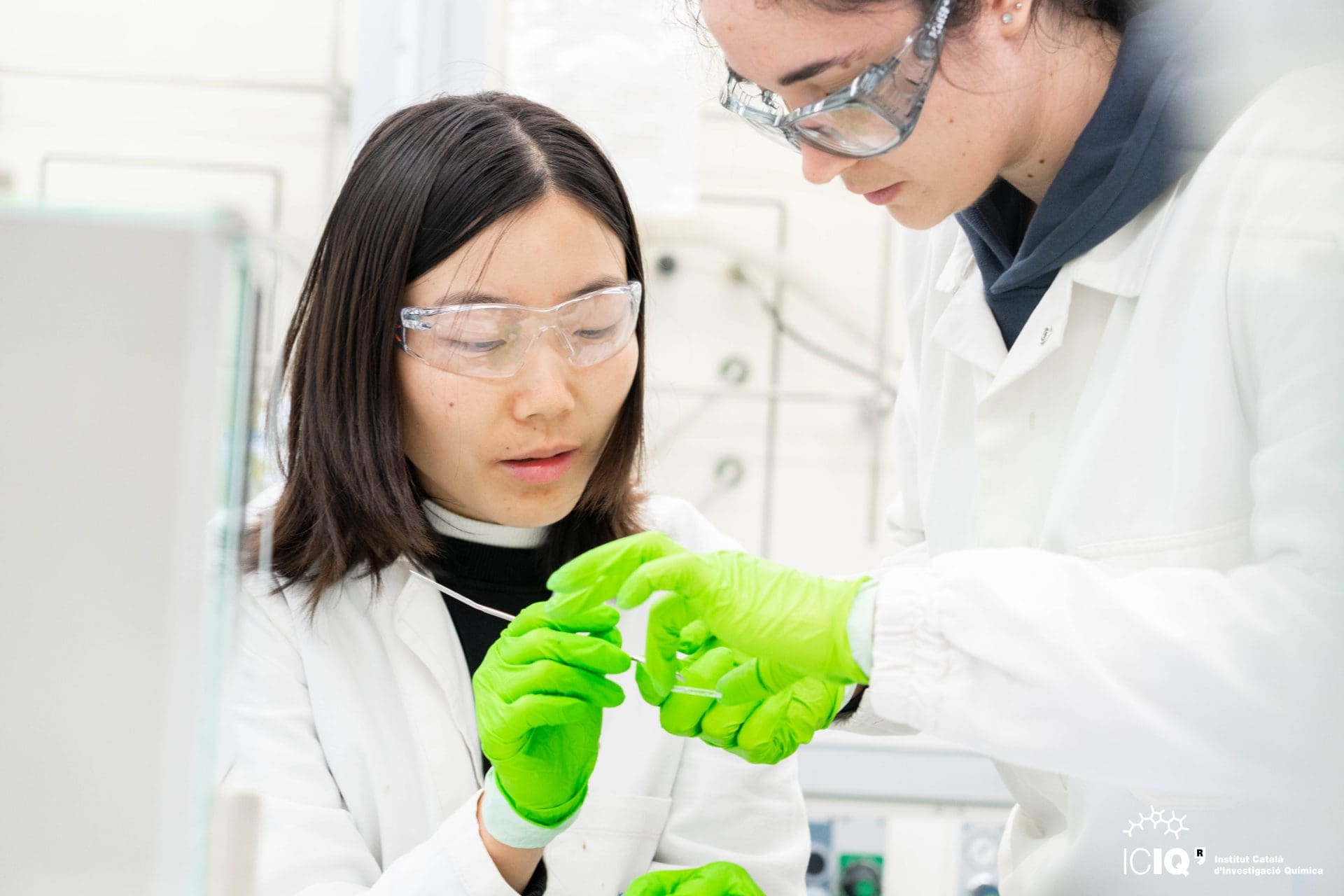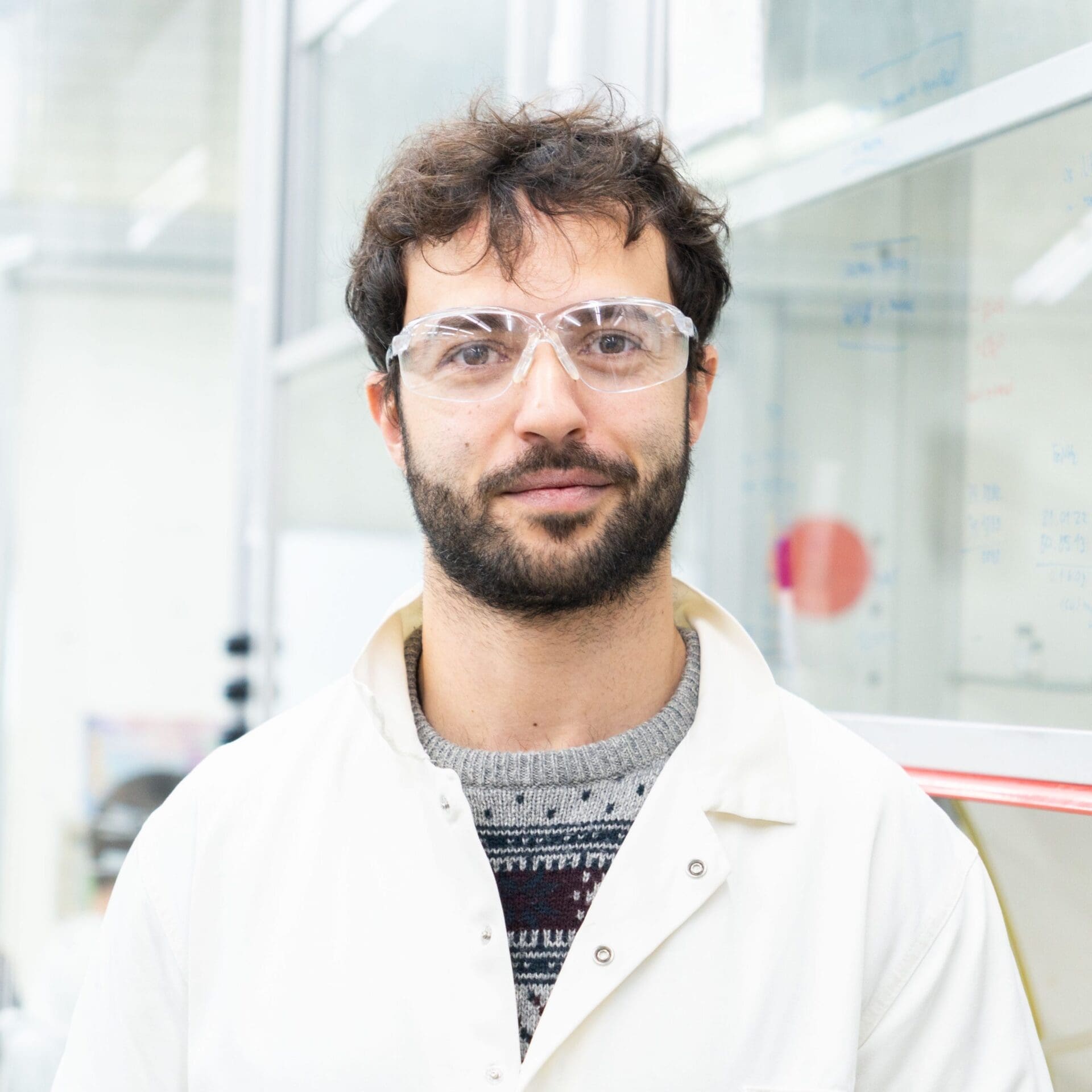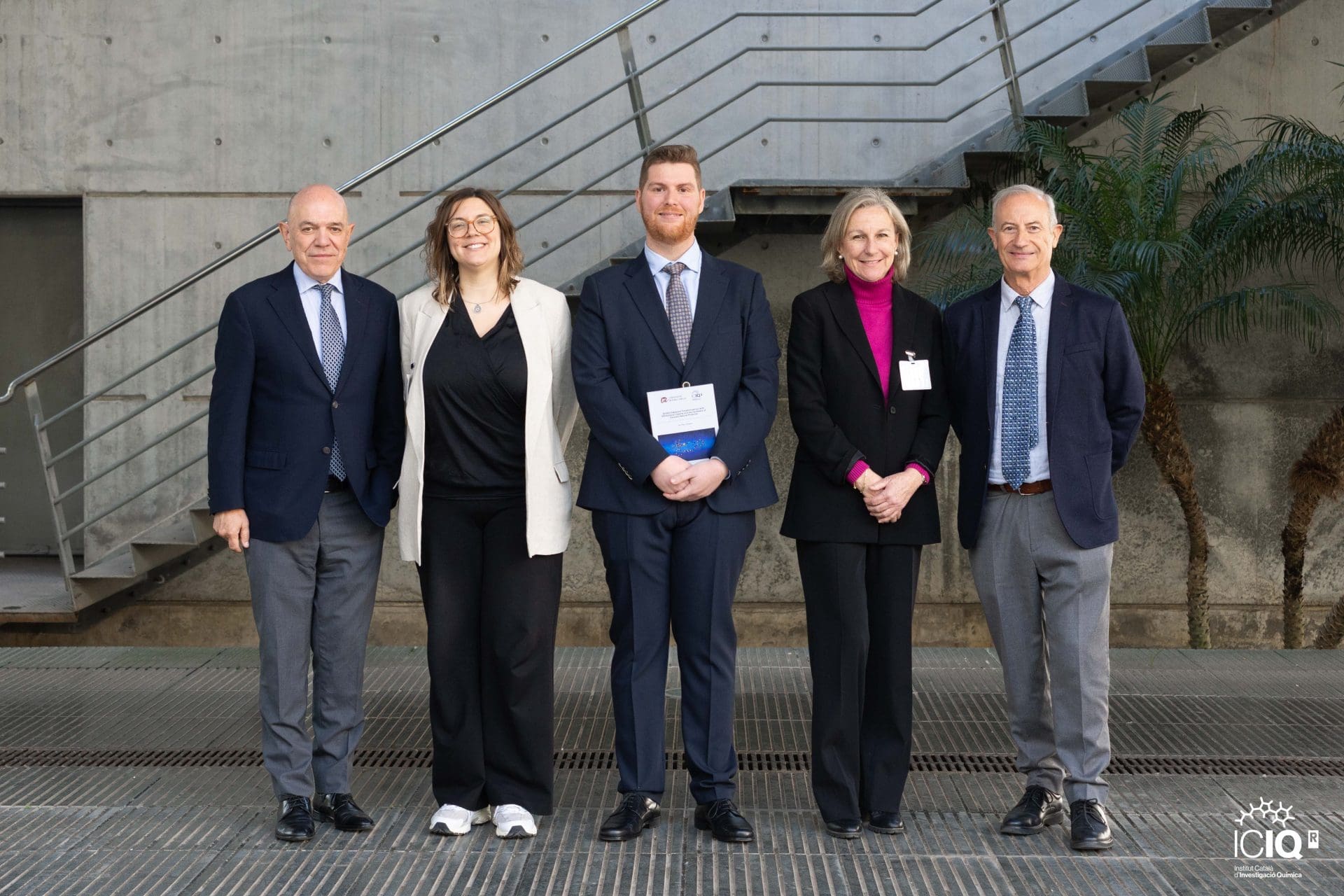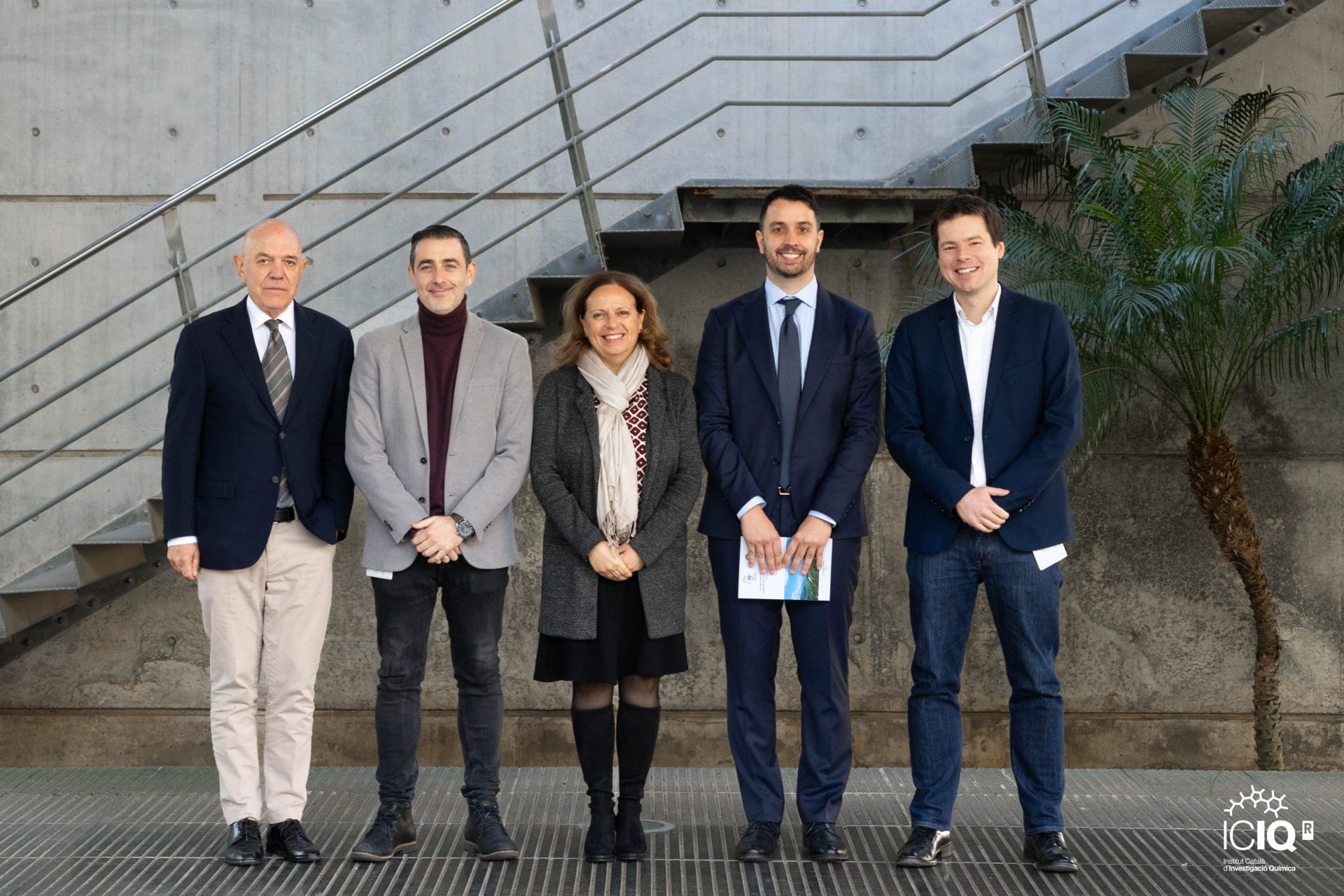Enhorabona, Dra. Odena!
Carlota Odena, a PhD student who is under Prof. Rubén Martín’s supervision, has successfully defended her PhD thesis entitled “Unravelling Mechanistic Underpinnings of Organometallic Nickel Chemistry and Applications into Medicinal Chemistry” publicly on October 17th.
The members of the evaluation committee were Prof. Dr. Eva Hevià (Universität Bern, Switzerland), Prof. Dr. Anna Company (Universitat de Girona) and Prof. Dr. Jesús Campos (Institute for Chemical Research (IIQ), Universidad de Sevilla).

Dr. Odena was born in La Riba and grew up in Montblanc. She studied Chemistry at the Universitat Rovira i Virigli (URV) in Tarragona (2014-2018). During her undergraduate studies, she enjoyed a four-month stay in the group of Prof. Mónica H. Pérez Temprano at ICIQ, where she explored organocopper chemistry. Afterwards, she pursued a Master of Science in “Synthesis, catalysis and molecular design” at URV and ICIQ (2018-2019), conducting her master’s thesis on organocobalt chemistry in the same group. Subsequently, she joined the group of Prof. Rubén Martín to pursue her doctoral studies in organonickel chemistry with a FPI predoctoral fellowship from the Agencia Estatal de Investigación (AEI) – Spanish Ministry of Science. In her free time, Carlota enjoys reading and taking a walk by the beach.
Why did you become a scientist?
I do not recognize any specific moment that could be considered a turning point in my journey towards becoming a scientist. I would say that every academic decision was based on pursuing what I was most passionate about at the moment.
What do you want to achieve as a scientist?
Since my childhood, I have always been concerned by the impact of climate change and as a scientist I would like to contribute to combating it.
What is your thesis about?
My thesis has focused on the preparation of libraries of organonickel complexes and their use as a platform for late-stage diversification in medicinal chemistry, the disclosure of a new C(sp2)–H bond functionalisation strategy, and mechanistic investigations.
What triggered your interest for the subject of your thesis?
In line with my interest in organometallic chemistry and sustainable developments, I decided to pursue my doctoral studies in the group of Prof. Rubén Martín to learn about nickel chemistry.
What applications can your thesis have in the future?
The prospective applications of the developed investigations could include the incorporation of the described strategy involving nickel oxidative addition complexes into medicinal chemistry programs. This could help accelerate the access to potential drug candidates. Additionally, the extension of the strategy based on dinuclear nickel complexes into catalytic protocols would provide the synthetic community with a new nickel-catalysed approach for C(sp2)–H bond functionalizations.
The thing that I like most about my thesis is….
That I have prepared numerous nickel complexes with diverse characteristics, which have been leveraged to investigate different reactivities. Personally, I have been captivated by the versatility that nickel has to offer.
From the lessons learnt (or skills developed) at ICIQ, which one do you value the most?
Being patient, as the results might take time to materialize, and being a team player, as you always need support to achieve great things.
What ICIQ moment you´ll never forget?
I joined the group in October. Either in October or possibly in November, Jonas, a visiting student, started playing Christmas songs in the lab. It genuinely felt like a warm beginning in the group.
What do you wish you had known at the beginning of your PhD? And,What advice do you have for someone who’s starting their PhD now?
I think the idiom “don’t lose the forest for the trees” describes it pretty well.
Who/What has been your biggest influence/motivation?
During this time I have been surrounded by people I truly admire. They have been a constant source of motivation, driving me to continually surpass myself.
If you were a piece of lab equipment, what would you be?
I would choose to be a J Young NMR tube, as it allows for the convenient NMR analysis of air-sensitive complexes.


Related news

Let's create a brighter future
Join our team to work with renowned researchers, tackle groundbreaking
projects and contribute to meaningful scientific advancements
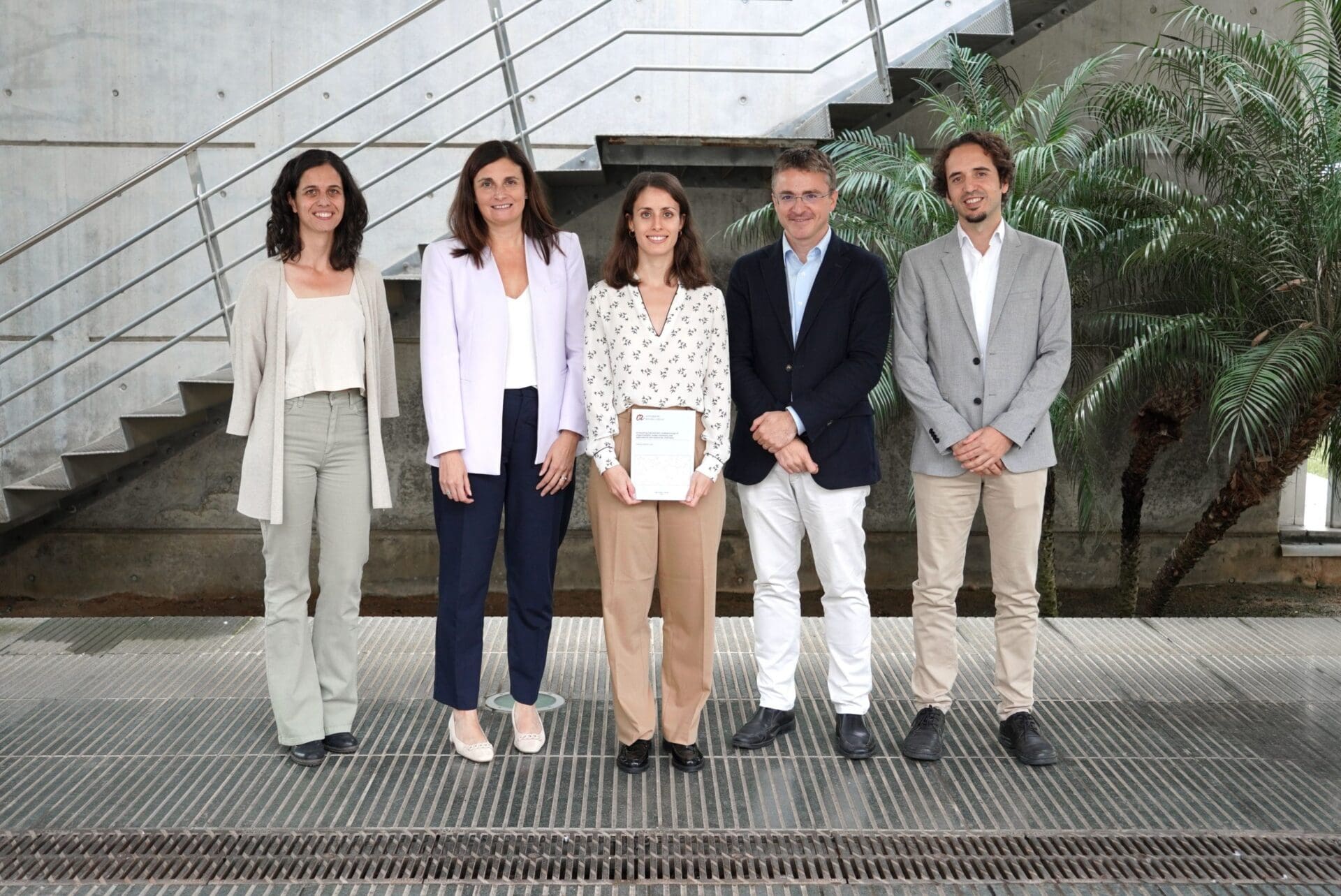






 07-03-2025
07-03-2025 